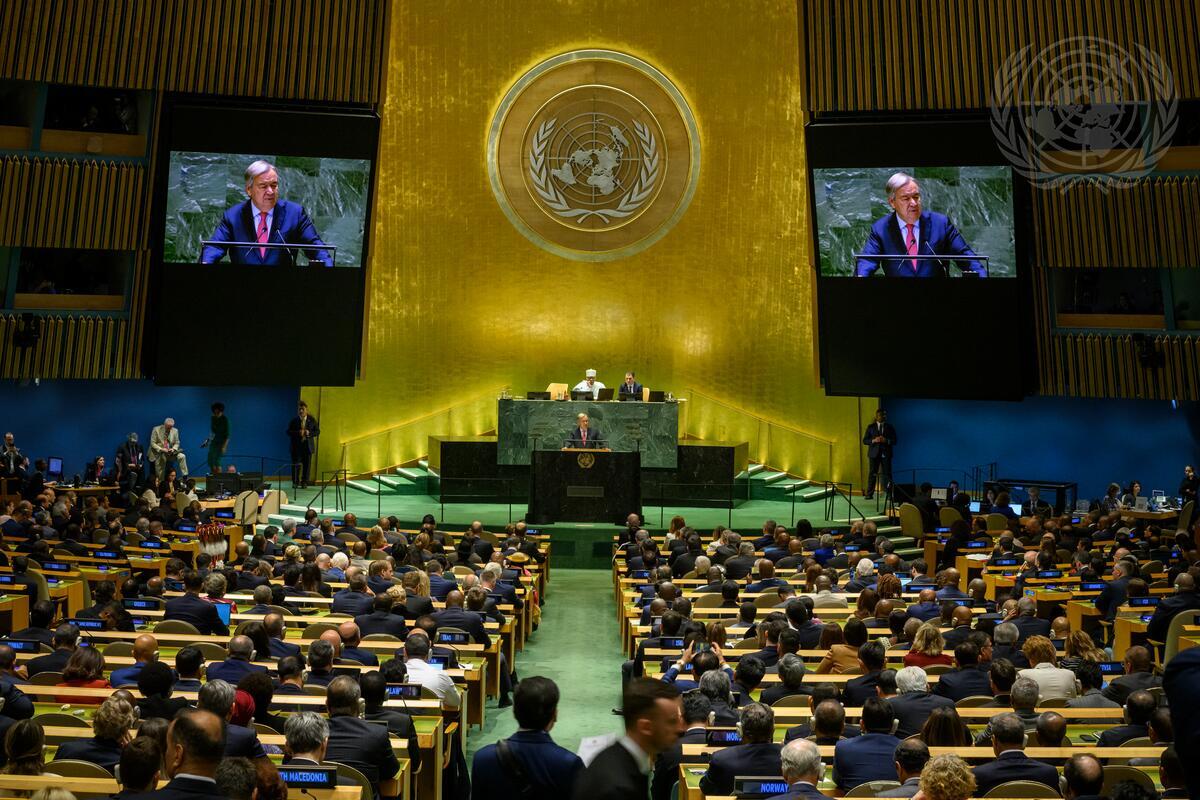This week, world leaders have convened at the 79th United Nations General Assembly (UNGA) in New York to discuss pressing global challenges, particularly focusing on peace, security, and accelerating progress on the 2030 Sustainable Development Goals (SDGs)—at least those still within reach, given the limited time left. It also provides a platform for countries to propose resolutions for collective agreement. Though non-binding, these resolutions can be presented to the Security Council, which holds the power to make them binding.
It is no news that coordinated global efforts are necessary to confront transnational issues such as war, insecurity, the refugee crisis, poverty, and the climate crisis. This week, world leaders are delivering a series of speeches, each echoing the familiar refrain of how we the people must guide the world toward a future that is safe, just, and fair. They have emphasized the importance of collaboration in eradicating global poverty, ensuring a just transition from fossil fuels to renewable energy, and, above all, delivering peace and justice in conflict-affected regions. Without peace and security, sustainable development is impossible. People need stability to pursue their dreams and goals; without it, insecurity threatens not just individual regions but the entire global community.
At times, I question whether we—the people and the leaders guiding our destiny—truly value peace or if we are simply engaging in a performance to appear as though we care. This skepticism arises from the blatant disregard for international human rights law (IHL) seen in recent years, stretching from Central Africa to the Middle East and Eastern Europe. Despite continuous appeals from world leaders to halt these violations and respect human rights, these calls have largely gone unheard. Furthermore, despite an International Court of Justice (ICJ) ruling on the Middle East, the violence and bombing persist. Similarly, in Eastern Europe the war on innocent civilians rages on; and in Central Africa, two warring factions continue to disregard IHL causing the deaths and destruction of lives and properties. These are in addition to the terrorism bedeviling certain regions including the West African sub-region causing the deaths and displacement of people.
“It’s widely recognized that there is no peace without development and no development without peace; it is also true that there is no peace and sustainable development without respect for human rights.”
– Antonio Guterres, UN Secretary General
After exhausting diplomatic options to protect innocent lives, one would expect leaders committed to peace to take more decisive action, especially in cases where States that are a part of the UN are involved. This could include halting arms sales to perpetrators, completely stopping trade with them, imposing sanctions on those fueling the violence, and advancing negotiations where necessary. Many countries in the Global South have voiced their frustration at the hypocrisy of powerful nations in the Security Council, using their veto power to selectively punish or ignore certain perpetrators of conflicts due to “politics.” This double standard only deepens global insecurity.
While I understand that political interests are at play, these interests must not come at the cost of achieving peace. You might find this idealistic, but the truth is that insecurity spreads. If powerful nations continue to pick and choose who can flout IHL and who cannot, it will eventually affect us all. Peace is not a luxury to be selectively pursued—it is a necessity everywhere. Leaders must act boldly, utilizing all available mechanisms to ensure peace everywhere, without exception. This also includes taking a strong stance on terrorism and exploiting all options available whilst working with governments to bring peace to innocent civilians in affected regions.
I also opine that the United Nations should have acted swiftly to remove the veto power of any Security Council member involved in perpetuating conflict. Though no legal provision currently supports such a move, it underscores the broader flaws within the Security Council itself, reinforcing the calls for its reform—particularly by increasing representation from the Global South. The world of today is vastly different from the one that existed in 1945 when the Security Council was conceived. We face new challenges; hence we require new solutions.
While achieving ultimate global peace may seem impossible, we cannot afford to give up. Insecurity in any part of the world is a threat to all of us. Tackling these challenges requires bold and audacious leadership—leaders who are willing to challenge the status quo and prioritize peace over political and personal gain. As former Burkinabé President Thomas Sankara once said, “We must dare to invent the future.” A leadership that strives to redefine the norms and steer us into the path of peace, regardless of the politics around it, is a leadership that dares to invent the future. This is the type of leadership we need and expect from global leaders in these troubling times.
